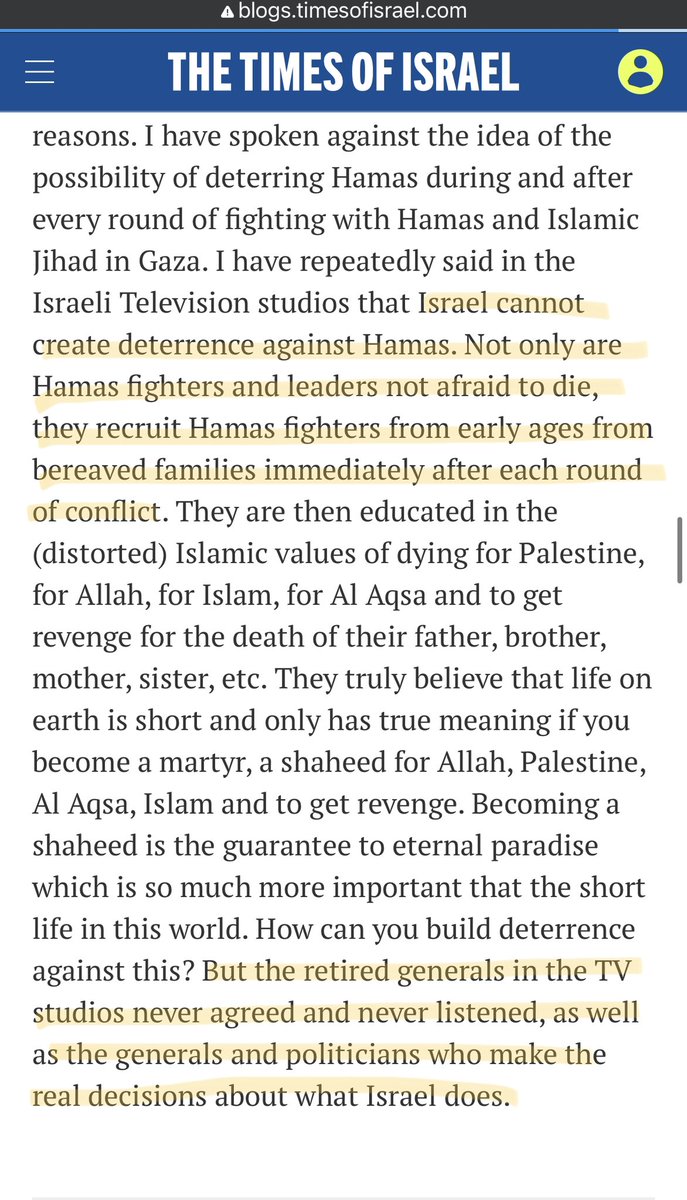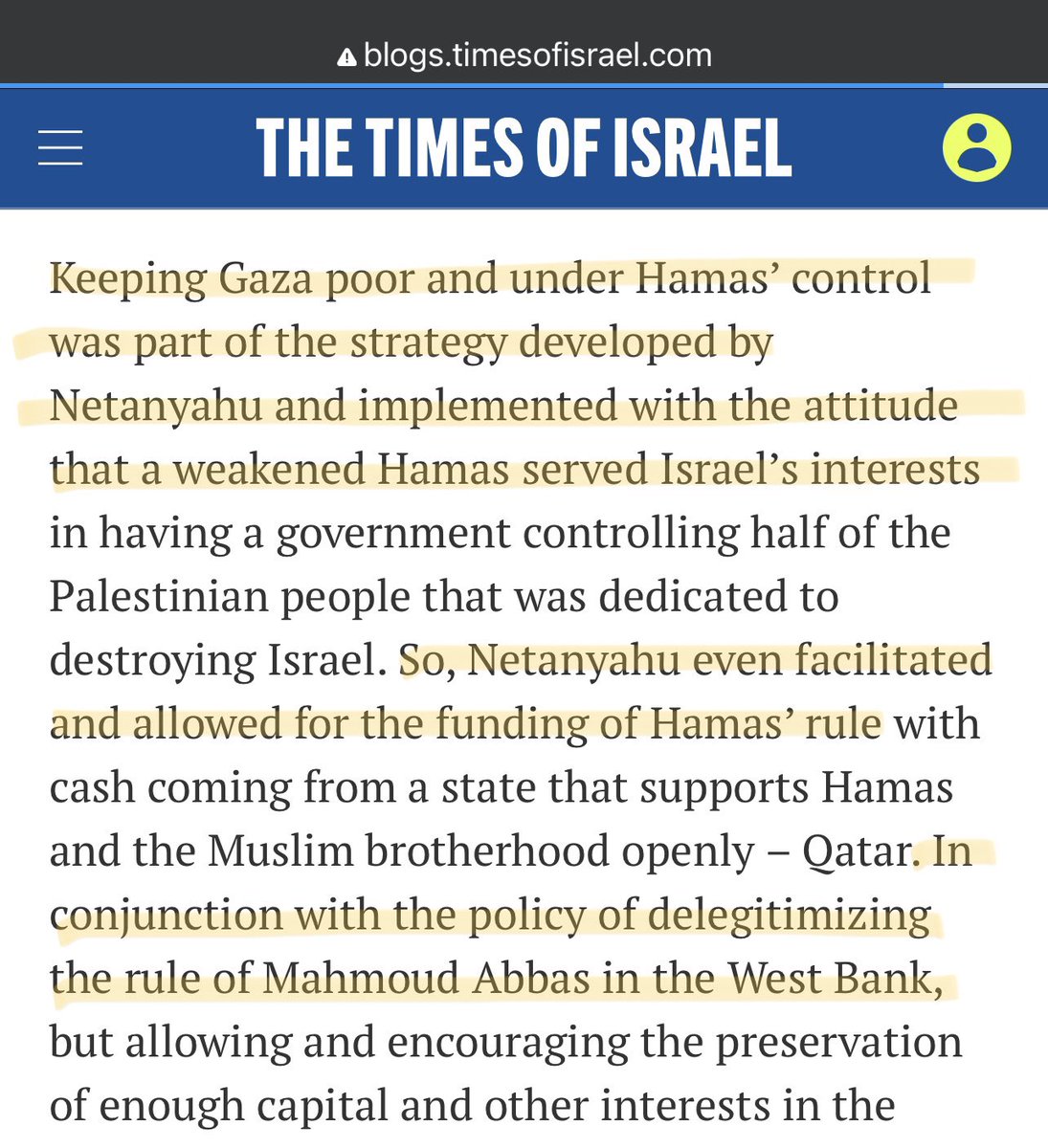Today marks 1 month since the Israel-Hamas war began.
On this day, I’m thinking about a crucial but under-examined topic: the role of graphically violent images & videos, which have spread w/ breadth & ferocity I haven’t witnessed in any other conflict—not even Syria or Ukraine.
On this day, I’m thinking about a crucial but under-examined topic: the role of graphically violent images & videos, which have spread w/ breadth & ferocity I haven’t witnessed in any other conflict—not even Syria or Ukraine.
Like countless others worldwide, I have watched & listened to grisly, harrowing crimes against humanity in vivid detail. I have seen many, many things I desperately wish I could forget.
On the Israeli side, I saw a young woman paraded like a bound animal, her legs twisted. I saw Holocaust survivors in pools of their own blood—burned children in their beds & burned young ppl in their cars, mouths agape.
Worst, I watched a Thai farm worker beheaded w his own hoe.
Worst, I watched a Thai farm worker beheaded w his own hoe.
On the Palestinian side, each day brings fresh horrors.
I saw an ambulance nurse, cradling & cooing to a baby before utterly breaking down while it smiled at him in his arms.
I have seen countless children covered in the grey ash of collapsed buildings shaking uncontrollably.
I saw an ambulance nurse, cradling & cooing to a baby before utterly breaking down while it smiled at him in his arms.
I have seen countless children covered in the grey ash of collapsed buildings shaking uncontrollably.
I have heard Palestinian women screaming the piercing screams of atrocity against Gaza’s night sky, blazing bright orange w/ bombs.
I have seen priests mourn before piles of bodies, and medics give pressers in front of piles of yet more bodies.
I have seen mass graves.
I have seen priests mourn before piles of bodies, and medics give pressers in front of piles of yet more bodies.
I have seen mass graves.
Two days ago—or one, or three; the insomnia-addled, grief-warped days mesh together—I saw more Palestinian children than I could count zipped up into large white body bags stained red w/ their blood. Many were reduced to indistinguishable pulpy lumps of flesh. It was horrifying.
Yesterday, I saw something still worse: a man holding up a dead baby—its skin grey-purple—for what felt like minutes, begging people to see what Israeli airstrikes had wrought. Another man beside him pushed up its lolling head.
I did not sleep. My fingers tremor as I write this.
I did not sleep. My fingers tremor as I write this.
Throughout this month, I have not shown—nor will I share—graphic images of violence on my feed.
They are already inescapable. And I have deep misgivings about the utility of being inundated w/ such images.
Indeed, I am concerned about PTSD & depression many may be experiencing.
They are already inescapable. And I have deep misgivings about the utility of being inundated w/ such images.
Indeed, I am concerned about PTSD & depression many may be experiencing.
On the one hand, good political analysis begins w/ empathy. And we cannot empathise w/ perceptions & political psychology if we don’t grasp the sheer amount & nature of gore they’re seeing.
On the other hand, viewing graphic violence can make people get depressed, inure & unplug
On the other hand, viewing graphic violence can make people get depressed, inure & unplug
What bothers me perhaps most of all about this is that very few—and I mean *very* few—people are exposed to/ exposing themselves to the gore feed that the “other side” is seeing.
That makes it easier for Israelis to radicalise & diabolise Hamas—and Palestinians, and vice versa.
That makes it easier for Israelis to radicalise & diabolise Hamas—and Palestinians, and vice versa.
Each “side” has experienced this month as a formative, extraordinarily traumatic parade of unspeakably graphic images that bind people in new understandings of reality, purpose & pain.
And these parallel pains are not seen—or even recognised as real—by many on the “other side.”
And these parallel pains are not seen—or even recognised as real—by many on the “other side.”
I also have pressing Qs—Qs that I intermittently contemplated during Syria & Ukraine, but that are more pressing & pertinent than ever imho:
To what extent does sharing & viewing graphic images inspire or depress constructive activism? To what extent might it spur more violence?
To what extent does sharing & viewing graphic images inspire or depress constructive activism? To what extent might it spur more violence?
Do we have any solid academic research that explores these Qs w/ empirical data & rigorous methods?
My short Google Scholar search didn’t yield much, but perhaps I wasn’t entering the right terms.
My short Google Scholar search didn’t yield much, but perhaps I wasn’t entering the right terms.
Some days—most days, tbh—I contemplate muting or unfollowing accounts that share graphically violent images. Like so many, I’ve struggled to function & stay afloat.
But to mute or unfollow these accounts would mean detaching myself from most informative voices now, sadly.
But to mute or unfollow these accounts would mean detaching myself from most informative voices now, sadly.
I apologise if my graphic descriptions of content have hurt anyone.
I have not written a 🧵 like this before & I hope not to write one again soon. I should have slapped a warning on this at the outset, so thanks in advance to anyone who puts a warning on this if they quote tweet
I have not written a 🧵 like this before & I hope not to write one again soon. I should have slapped a warning on this at the outset, so thanks in advance to anyone who puts a warning on this if they quote tweet
But I think this is essential to discuss.
In Gaza now—in part bc of the sheer amount of violence, & bc access to all but a handful of extremely traumatised local reporters is impossible—ppl are desperately amplifying eyewitness content w/o typical editorial standards.
In Gaza now—in part bc of the sheer amount of violence, & bc access to all but a handful of extremely traumatised local reporters is impossible—ppl are desperately amplifying eyewitness content w/o typical editorial standards.
I viscerally understand & empathise w/ why people are doing this: the world, they feel, is ignoring Palestinians’ plight. In a situation where people feel sickened & powerless, to view from a position of safety but not to share can feel like an act of guilt-inducing betrayal.
Coincidentally, many on Israeli side also felt international media downplayed or quickly moved on from their pain. So some Israeli accounts, WhatsApp groups, etc. started sharing v graphic Oct 7 images.
Stimes this is hasbara. But more often it’s a desperate cry for empathy.
Stimes this is hasbara. But more often it’s a desperate cry for empathy.
I recall that, a few years back, when video of George Floyd’s murder surfaced in the US, there was discussion about how viewing that video had traumatising effects for many people—but especially for already marginalised people who could personally identify w/ that trauma.
Palestinians & Israelis especially, & Jews & Arabs to an extent more broadly, carry deep traumas that make these images resonate in extraordinarily powerful ways that can be difficult for out-groups to understand. They lock into preexisting narratives of Nakba, Shoah, ‘48 & more.
I’m not quite sure how to conclude a thread this raw, but I just want to say to everyone hurting: you are not alone. We are witnessing a digital war, and a mass-traumatising event, of arguably unseen proportions.
Please take care of yourselves.
Please take care of yourselves.
• • •
Missing some Tweet in this thread? You can try to
force a refresh

 Read on Twitter
Read on Twitter






